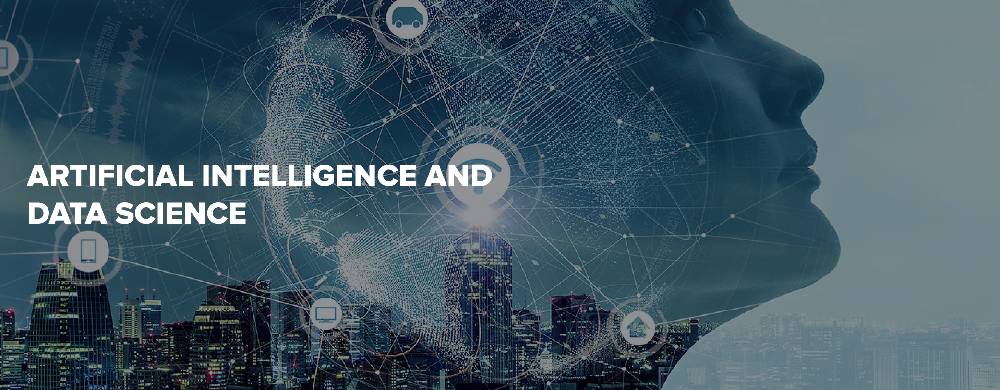Data Science and Artificial Intelligence (AI) are reshaping industries globally, and India stands at the forefront of this technological revolution. With its rapidly growing economy, vast pool of technical talent, and supportive government policies, India is becoming a significant player in the global AI and Data Science landscape. This blog delves into the current state, opportunities, challenges, and future prospects of Data Science and AI in India, providing a comprehensive overview for enthusiasts, professionals, and policymakers alike.
The Current Landscape
Market Growth and Demand
India’s Data Science and AI market is experiencing unprecedented growth. The demand for AI-driven solutions is surging across various sectors, from healthcare to finance, retail, and beyond. According to a report by NASSCOM, the AI market in India is projected to reach $7.8 billion by 2025, growing at a compound annual growth rate (CAGR) of 20.2%. This growth is fueled by the need for data-driven decision-making and process automation.
The proliferation of smartphones and internet penetration, coupled with the massive amounts of data being generated, has created fertile ground for AI applications. Companies are increasingly adopting AI to enhance efficiency, reduce costs, and improve customer experiences. The COVID-19 pandemic has further accelerated digital transformation, with AI and Data Science playing pivotal roles in adapting to the new normal.
Government Initiatives
Recognizing the transformative potential of AI, the Indian government has launched several initiatives to promote its adoption and innovation. Some of the key initiatives include:
- National Strategy for AI (#AIforAll): This strategy aims to leverage AI for inclusive growth and development. It focuses on sectors like agriculture, healthcare, education, and smart cities, emphasising the use of AI to solve societal challenges.
- Digital India: This program, launched in 2015, intends to ensure that citizens may access government services electronically by upgrading online infrastructure and expanding Internet connectivity. Digital India has established a healthy digital ecosystem, allowing AI applications to thrive.
- Startup India: This initiative promotes entrepreneurship and innovation, providing funding, mentorship, and regulatory support to startups, including those in the AI and Data Science space.
- Artificial Intelligence Research, Analytics, and Knowledge Assimilation (AIRAWAT): AIRAWAT is a cloud computing platform designed to support AI research and development. It aims to provide the computational power necessary for large-scale AI projects.
- National AI Portal: Launched in partnership with the IT industry, this portal serves as a one-stop-shop for AI-related information, resources, and opportunities in India.
Academic and Research Institutions
India boasts several prestigious institutions that are at the forefront of AI and Data Science education and research. The Indian Institutes of Technology (IITs), Indian Institute of Science (IISc), and Indian Statistical Institute (ISI) offer specialised programs and are involved in cutting-edge research. These institutions are not only producing skilled graduates but also contributing to significant advancements in AI and Data Science.
The collaboration between academia and industry is crucial in driving innovation. Research projects often involve partnerships with leading tech companies, ensuring that academic insights translate into practical applications.
Industry Applications
Data Science and Artificial Intelligence (AI) are transforming a wide array of industries in India, driving innovation, efficiency, and growth. Here, we explore how these technologies are being applied across different sectors:
Healthcare
In healthcare, artificial intelligence is transforming diagnosis, treatment planning, and patient care. Indian startups like Niramai are using AI for early detection of breast cancer through thermal imaging. Major hospitals are employing AI for predictive analytics to improve patient outcomes, manage resources, and streamline operations.
AI-powered telemedicine platforms are bridging the gap between urban and rural healthcare, providing remote consultations and diagnosis. During the COVID-19 pandemic, AI played a critical role in tracking the spread of the virus, predicting hotspots, and assisting in vaccine development.
Finance
The financial sector is leveraging AI to enhance fraud detection, automate customer service, and offer personalised financial advice. Leading banks like HDFC and ICICI have implemented AI-driven chatbots for customer support, fraud detection systems, and personalised investment recommendations.
AI is also transforming the insurance industry by enabling risk assessment, claims processing, and customer service automation. Robo-advisors are gaining popularity, offering automated, algorithm-driven financial planning services.
Retail
Retailers in India are utilising AI to optimise supply chains, enhance customer experiences, and personalise marketing strategies. E-commerce giants like Flipkart and Amazon India are employing AI for product recommendations, inventory management, and dynamic pricing.
AI-driven analytics help retailers understand consumer behaviour, predict trends, and manage inventory efficiently. Chatbots and virtual assistants are enhancing customer engagement by providing personalised shopping experiences and support.
Agriculture
In agriculture, AI is being used to improve crop yields, optimise resource utilisation, and predict weather patterns. Startups like CropIn are using AI to provide real-time advice to farmers, monitor crop health, and manage supply chains. AI-powered drones and sensors are assisting in precision farming, reducing waste, and increasing productivity.
AI applications in agriculture are helping address food security challenges by improving the efficiency and sustainability of farming practices.
Opportunities and Benefits
The rapid adoption of Data Science and Artificial Intelligence (AI) in India presents numerous opportunities and benefits across various sectors. Here, we explore the significant opportunities and benefits that Data Science and AI offer in India:
Economic Growth
AI and Data Science have the potential to significantly boost India’s GDP. This growth is expected to come from increased productivity, innovation, and the creation of new market segments.
AI-driven automation and analytics are enabling businesses to operate more efficiently, reduce costs, and innovate faster. Industries that adopt AI are likely to see substantial gains in competitiveness and profitability.
Job Creation
Contrary to fears of job displacement, AI and Data Science are creating numerous job opportunities. Data Scientists, AI specialists, and Machine Learning Engineers, are in high demand. The need for skilled professionals in these fields is driving educational institutions and training centres to offer specialised courses and certification programs.
The reskilling of the existing workforce is also essential. Companies are investing in training programs to equip their employees with AI and data analytics skills. Online learning platforms like Coursera, Udacity, and edX offer a plethora of courses to help professionals upskill.
Social Impact
AI and Data Science are not just about economic benefits; they also hold the potential to address critical social issues. AI-driven analytics can aid in disaster management by predicting natural calamities and optimising response strategies. In healthcare, AI can improve diagnostics and treatment in underserved areas.
In agriculture, AI can help smallholder farmers increase their yields and incomes. AI-powered educational tools can provide personalised learning experiences, making quality education accessible to a broader population.
Innovation and Entrepreneurship
India’s startup ecosystem is vibrant, with numerous AI and Data Science startups emerging across various sectors. These startups are driving innovation, offering solutions tailored to the unique challenges of the Indian market. With continued support from investors and the government, this trend is expected to grow, fostering a culture of entrepreneurship and innovation.
Future Prospects
India’s journey with Data Science and Artificial Intelligence (AI) is poised for significant advancements. As the country continues to invest in digital infrastructure, education, and innovative solutions, the future of Data Science and AI in India appears promising. Here are the key areas that highlight the future prospects of Data Science and AI in India:
Advancements in AI Research
India is making notable contributions to AI research. The establishment of AI research centres and increased funding for research projects are likely to accelerate advancements in this field. Collaborative efforts between academia and industry will further drive innovation.
Indian researchers are focusing on areas such as natural language processing, computer vision, and AI ethics, contributing to global knowledge and technological progress. The development of AI solutions tailored to Indian languages and contexts is a significant area of focus, ensuring that AI benefits reach diverse populations.
AI for Social Good
The application of AI for social good is gaining traction. Projects focused on using AI for environmental sustainability, public health, and education are emerging. These initiatives demonstrate AI’s potential to contribute positively to society.
AI-driven solutions for environmental monitoring, waste management, and renewable energy optimization are being developed. In public health, AI can enhance disease surveillance, improve healthcare delivery in remote areas, and support mental health initiatives.
Startups and Innovation
India’s startup ecosystem is vibrant, with numerous AI and Data Science startups emerging. These startups are driving innovation across various sectors, offering solutions tailored to the unique challenges of the Indian market. With continued support from investors and the government, this trend is expected to grow.
Incubators, accelerators, and venture capital firms are playing a crucial role in nurturing AI startups. Government schemes like Startup India provide financial incentives and regulatory support, fostering a conducive environment for innovation.
Global Collaboration
India is increasingly collaborating with other countries in AI and Data Science. These partnerships are fostering knowledge exchange, research collaborations, and access to global markets. Such international cooperation is crucial for staying at the forefront of AI advancements.
Collaborations with leading AI research institutions and tech companies from around the world are helping India stay abreast of the latest developments. These partnerships are also facilitating the exchange of talent and ideas, driving innovation and growth.
Conclusion
Data Science and Artificial Intelligence are transforming India, driving economic growth, creating jobs, and addressing social challenges. The government’s proactive initiatives, the burgeoning startup ecosystem, and the contributions of academic and research institutions are collectively shaping a vibrant AI and Data Science landscape. However, challenges need to be addressed to fully realise the potential of these technologies. With sustained efforts and strategic collaborations, India is well-positioned to emerge as a global leader in AI and Data Science.
India’s journey in AI and Data Science is a testament to its resilience, innovation, and commitment to harnessing technology for inclusive growth and is backed up by engineering institutes and the students learning the skills. As the country continues to embrace and advance these fields, the future looks promising for a tech-driven, data-centric India.




